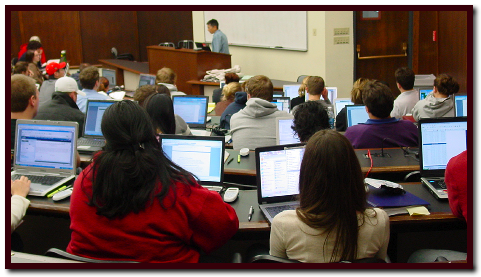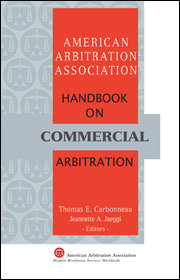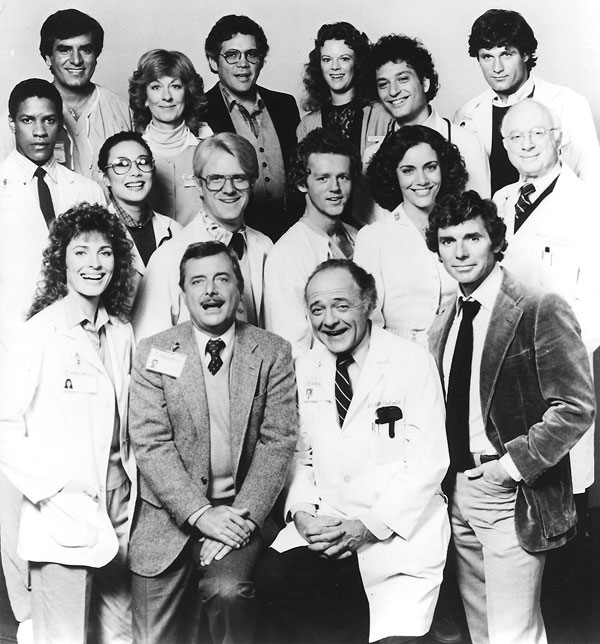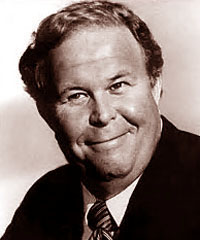« September 12, 2010 - September 18, 2010 | Main | September 26, 2010 - October 02, 2010 »
September 25, 2010
In a Recession, you have a choice: (1) Hire Boomers, or (2) Get Your Squeak On.
Who do you really want for the hunt? Or as one Boomer said, quoted by Scott Greenfield in a fine Simple Justice post Greenfield turned in late last year:
Boomers will work long and passionately into their sixties, seventies and even eighties. They are never offended by hard work or complex problems.
They don't think that digital toys make your work better—and they are right about that. Boomers like complexity, ambiguity, and genuinely hard problems. Gadgets? They just make you coffee, or give you a copy.
I'd rather work with a 50-year-old than anyone because he or she, generally, will go on until the last dog dies. Never prissy. Always engaged. Nothing is too hard. Boomers are "Foxhole People" to the core.

One (1) Huntin' Dog.

Four (4) Looters.
Posted by Holden Oliver (Kitzbühel Desk) at 12:51 AM | Comments (0)
September 24, 2010
This Blog is a No-Wuss Zone. Anonymous comments ignored. Exception: 'Club Ned'.

Back in the Pre-Squeak Age, most people who wrote or said things were really proud--and not ashamed--of who they were. When you do comment, (a) use your real name, (b) have something authentic and thought-out to say, and (c) resist the increasing trend of the Net to gush so happily--and proudly--about Going Through Life as a Turd.
This is really not a PC New Age lawyer these-words-have-been-touched-by-God blog that lazy and poofy males born after, say, 1975, with inflated grades--and other "achievements" like perfect attendance records and nonstop breathing--generally want to read.
Why? It makes them uncomfortable. It doesn't fit their "world view". They need to read things that make them feel good about themselves for about another decade or so. And they may never "graduate", or grow. We do wish them the best.
This blog? It's not perfect. However, it's about real values for literates with real aspirations: real people who want to have great lives, and do difficult work for real customers and clients, and do it well. So to comment and be published at this blog, you must tell us who you really are.
We fortunately have never received that many (together with our daily spam comment load of around 200). We're very busy not blogging, and we don't care if most people do comment. Really. We can't even respond fully to most of better non-trash/signed ones we get.
.jpg)
Finally, but importantly, it would be nice when you comment if you had something to say and are not just one of the many people (including far too many lawyers) on the Net who is quite happy, frankly, going through life as a turd. You don't have to be nice. You just have to use your real name--and not be too stupid, or too much of a turd.
So we'll have a "conversation" with you. But you must use your real name--which is apparently, and sadly, a major achievement for so many. Not that long ago, people did this all the time without question, and for many centuries. It was considered to be part of the rent you paid for being a real person.
In fact, most people who wrote or said things were really proud--and not ashamed--of who they were. Back in the Pre-Squeak Times.
Exceptions under our policy: You are a Cuban, Chinese or Iranian dissident (i.e, we really respect you). A CIA operative (we respect you). A rape victim (either sex: we feel for you, respect your wishes, and will help guard your anonymity). Or a Club Ned Permit Holder (we feel so bad we can't stand to think about it or deal with you too much--but we're trying to understand your humiliation as a "man"...but still better you than us).
Sorry. Anyway, three further points:
1. Being miserable, afraid, incompetent and broke is a choice, you know? In the case of being violated in the worst possible male way, it's how you react to it, Justin. (Uncle Bob at Camp Sammy told you that! Remember?) So, anyway, if you continue to be in the profession, and you must hide, try instead for a while a specialty hot dog stand, opening a flower shop, or selling shoes, maybe. The Law is not your thing. Neither is Real Life.
2. Or at least take a canoe trip with some of your manlier buddies--and some time to think about it.
3. Full Club Ned membership details are here.
Posted by JD Hull at 11:59 PM | Comments (0)
September 23, 2010
Once again: American Law Schools, can you help us all out on that pesky Value Thing?

Watch closely. At some point, a law firm, a law student, or a recent law grad may very well may bring a Rule 11-proof action against a "good" American law school.
It will not be because he or she cannot find a job. It will be simply because they cannot do one.
We are desperate--and burning daylight and money here. Marc Randazza is a San Diego-based First Amendment specialist who writes The Legal Satyricon. Like the undersigned, he is hard-working, works out of several offices, and is obviously having fun. Randazza is irreverent, "not prissy", passionate, mega-competent, and not concerned about what people think. Hear his April 2 NPR interview on SLAPP suits. Or read about abolition of limitations periods in clergy child abuse cases in "If you’re still Catholic...". He and his other writers don't cower behind "anonymity" when they write. Randazza's his own man, and a stand-up guy.
In short, an American. And none of this would be that unusual except that Marc is an American lawyer. And let's face it. Being eccentric, wild and/or "edgy" in American Lawyerland is not a tough mark to hit. Just wear a bow-tie, tasseled loafers and a trench coat. But maybe, say, in public, and wear them all on once, and on a weekday. Ah, live dangerously, lawyer friends. All over the world, we could go nuts--and "get it on" like big dogs.
Last year, Marc wrote "The Worthlessness of American Legal Education", a piece we admired and which is certainly worth your time to read. The theme "what should we expect now from law schools, anyway?" endures at Marc's blog and others. We've written about that theme--from the standpoint of clients as always being the "main lawyer event"--here at this blog for nearly five years. And written about it enough to know it's a very touchy subject.
In the late summer of 2008, we wondered aloud--and just weeks before the federal government's late "announcement" that there was a "recession goin' on"--on whether law students and recent grads should start paying law firms (yes, new lawyers pay the firms) for training to be lawyers who could add value in a shorter amount of time. In fact, our August 27, 2008 post was probably our most clicked-on but yet "unpopular" piece: "Should associates pay their law firms in the first 2 to 3 years?"
American law schools are some of the most impressive places of higher education in the world. They are exciting intellectually, great think tanks for business, and attract mega-talented humans, particularly in the quality of faculty. They hatch presidents, justices, senators, captains of industry, great authors and diplomats. But many law firms these days are meeting new grads who won't be even marginally productive for two to three years. Or longer. And new grads--at a shop that actually tries to train you--often (not always) "get more" than the firm does out of the relationship in those years.
Law schools, certainly, are not in business to pay students to be trained. Students pay the tuition--not the reverse. The schools get the money. The schools don't pay the students to be there to learn.
Which gets us wondering again. Why should law firms pay new grads--even top students from fine schools--if they are often years away from being productive, and the law schools, for all their promise, potential and cache, are doing about 10% of the lawyer-creating job?
In many instances, the new grad is the only real beneficiary in the law firm-employee relationship. Turnover everywhere is relatively high. Many firms get zilch--and start over again. The current situation is bad for clients because it compromises value--and it cannot be good for students who think they are equipped to add value when they are not even close.
We suspect that legal education in recent years appears to have done many students a disservice by making them think that law school--by its very nature of being focused on teaching you "to think" like a lawyer--could ever give students more than 10% of what they need to be full-gauged lawyers and problem solvers.
Law done right is a hands-on profession and takes everything you have, and organizational and managerial skills the schools cannot teach or be expected to teach.
"Thinking like a lawyer" does not inform your every synapse, breath, and moment.
Moreover, lawyering is not necessarily a "PC", gentle or even genteel culture. Are the schools telling them it is?
To be fair, the substance of the work at a client-focused law firm doing higher-end problem-solving (in deals, courts, international work, etc.) may be very cerebral and challenging. A feast of exhilarating ideas and causes. Lucky people leading a Life of the Mind.
But what is the actual tone and atmosphere of an excellent law firm--even the most humane ones--that quickly resolves problems and gets things done? Often it will be more like Rahm Emanuel, John Wayne or Colonel Bill Kilgore in "Apocalypse Now" commanding brainstorming, hard-ass and fully-engaged troops.
It it will be less like Mr. Rogers or Alan Alda whispering kind and nurturing things to the latest crop of Teletubbies and making sure they are okay. Big Bird and Care Bears in the trenches is not an image most of us wish to project to clients. (If we ever do that, please get a big net, okay?)
Bosses at law firms may be Coif, former Law Review editors, and writers of famous Matthew Bender tomes. But they are still bosses who "want stuff". They do not understand (or even like) younger people who can't get it for them. Many law firms are dominated by type-A problem solvers with strong personalities who live to get things done. Let's hope that never changes. It's good for the customers.
You may ask: has the "recession" or downturn in the global economy helped? Has it made students and graduates more likely to stick it out, and compensate for things they may not have gained from their legal educations? Are students and new grads "stepping up" to train themselves?
Answer: No. We, at least, are not seeing it. Nothing has changed.
And finally there's the question: Is it really necessary for law students to be in classroom settings for three years?
At a minimum, we wish that law schools could convey a few truths, and what might be called "old verities", to part-time clerks, summer clerks and grads:
1. Even for the most brilliant, motivated, resourceful and ambitious people, law practice is time-intensive and very hard--especially in the beginning.
2. Graduating from law school with top grades and willing to give practice the old Siwash try is only the beginning of your travail. Again, practicing law is hard. Even harder to learn how. And hard to maintain as years roll by at a comfortable and honorable level of quality. You don't get to say this much: "Sorry, Jack, but I'm on my break."
3. Real-life client problems pose extraordinary ambiguity and complexity (you can't "Google" the answers; you may fret over some projects and have to stay late; at first, it may interfere with your relationships and your "real life").
4. Maybe you'll find that private practice is not for you. It's not about the lawyers, courtliness, lawyer-centric cults of "professionalism", bar associations, wearing cool suits, prestige, money or being in a special club. If you stay in it for all that stuff, even if you make big bucks, you will regret it. No, you will hate it.
5. Clients. Talented people with JDs are legion. It's really about those you serve: the gritty details, hardships, and joys of "getting it right" for them.

Law Schools: Weenie factories? Or where one first learns to think hard, work hard and add value? (Photo: The Situationist)
(from a Dec. 21, 2009 JDH post)
Posted by Holden Oliver (Kitzbühel Desk) at 12:59 AM | Comments (1)
September 22, 2010
Almost overnight, American CPAs have started to drink, do drugs and philander.
.jpg)
Columbia Pictures
Not really. But those folks do seem to be getting out more.
Why are we talking about accountants here, anyway? Well, it's good to escape your own neighborhood--and on a regular basis. A real road trip--like drive from DC to Charlottesville or Chapel Hill. Or at least a virtual one. Like take a vacation from lawyers. Consider meeting engineers, actuaries, doctors, sales people, chimney sweeps, cocktail waitresses named Merle--you get the idea.
And accountants. As with lawyers, real accountants (i.e., they love what they do) put clients first. As a friend of ours once said:
Once I start gazing at my clients and stop gazing at my wallet, I have a life. Because I am doing what is important. Amazingly, my wallet takes care of itself.
Accountants, also like lawyers, are reputed to be careful and a bit risk-averse. And self-important and boring. But we never completely bought that (about the accountants, anyway). For many businesses, their day-to-day accounting firms are more cost-efficient, solution-oriented and productive than their outside law firms.
You and yours starting a business and putting your money, sweat and ideas into it? You aim to be the new Apple, new Starbucks, new P&G? Well, that's just great. Do hire both a CPA and a lawyer you respect and trust--you need both kinds of consigliere--and do it well before you incorporate. But find that CPA firm first.
Our fellow Midwesterner Michelle Golden at Golden Practices likes good practicing accountants, too. She's noticed all the accounting blogs sprouting up (nearly 200 so far).
Posted by Holden Oliver (Kitzbühel Desk) at 11:59 PM | Comments (1)
Just out: 2d Edition of AAA Handbook on Commercial Arbitration

AAA Handbook on Commercial Arbitration--2nd Edition
Editors: Thomas E. Carbonneau, Jeanette A. Jaeggi
Posted by Holden Oliver (Kitzbühel Desk) at 11:00 PM | Comments (0)
September 21, 2010
Three years ago at WAC/P--Litigation: How much time should we ask the Deacon for discovery?
Will someone please send one of the damn clerks to the Church of the Final Thunder down the street and Shepardize a passage from the Book of Amos? Chapter 3, Verse 4, Jackson 5. This minute--or I'll sack the lot of you.
If lovin' the Lord is wrong, we don't want to be right. Our law firm and blog have writers of several different faiths and spiritual persuasions--including one lapsed Episcopal-Belfast Protestant with a taste for religious art. Catholics. Jews. And at least one born-again Druid. But this news item blew us away three years ago. Click on the two links. Do see "Rule 38". We did not make this up. It happened in America, of all places:
Bible-based ADR? This one is from David Lat at wonderfully secular Above The Law. WAC? may either begin drinking or attending services again. Maybe both at once. Rule 38 of the Institute for Christian Conciliation is: "Legal or Scriptural Briefs. The arbitrators may request or consider briefs or position papers that set forth the parties' understandings of the legal, factual, or scriptural issues."

(Photo: Major Tool Archives)
Posted by Holden Oliver (Kitzbühel Desk) at 12:50 AM | Comments (0)
September 20, 2010
"St. Elsewhere" starts with Episode #1 tonight.
All 6 seasons of "St. Elsewhere"--the much praised mid-1980s ensemble cast TV drama--starts today on the ALN cable channel. Relive the quality, originality and authenticity of Pre-Squeak America. Historical note: In this acclaimed series, none of the actors, or the characters they play, are "anonymous", or hide behind pseudonyms. The male characters are not "sweet", confused, wimpy, thin-skinned, or neutered. The women are scary. Episode #1 tonight. A gem.

"St. Elsewhere" runs in its entirety over the next several months.
Posted by JD Hull at 11:59 PM | Comments (0)
Overheard Sunday in the 'Sades.
"Honey, just wear a black turtleneck--even Ned Beatty looks good in a black turtleneck."

Club Ned: Beatty days before his first Georgia fishing float-trip to bond with buddies and nature. Seriously, Louisville-born Beatty, 72, is one of America's great talents. Actor's actor. Played a fine Tennessee lawyer in Robert Altman's rule-breaking, genre-crashing "Nashville".
Posted by JD Hull at 02:59 PM | Comments (0)
For Gen Ys: Yours in the struggle, dudes.
(skip to 4:30)
Posted by Holden Oliver (Kitzbühel Desk) at 12:00 AM | Comments (2)
September 19, 2010
French still balking at brutal Anglo-Saxon regimes of Work.

Charles de Gaulle in 1947: "Two more months. And that's it, okay?"
There's just no other way to say it. Sure, wouldn't a long holiday of 65 years (since circa 1945) get even the French rested up? Historically, they are not a lazy or wimpy lot. A bit high-strung, maybe. But as this blog has pointed out repeatedly, the French, after all, are still curators of the best that Western culture, government and traditions have to offer us, and that they have way more artistry for life and class than you and I do, Ernest. Yes, they are. Certainly, they do. Just because our French cousins behave in irritating and superior ways doesn't mean that they are not both.
But c'mon, La Belle France, I mean, like, work much?
It's a fair question.
France has one of the healthiest populations on the planet (young, old, workers and non-workers). They are living longer and longer. So can you guys at least beef up the public treasury with more pension and social welfare funds by working a few years longer--until the ripe age of 62? Do see the unusually sympathetic (by Brit anti-French standards) story run by the BBC News: "French Horror at 'Anglo-Saxon' Welfare Reforms". Excerpts:
The French are scandalised by President Nicolas Sarkozy's determined push to raise the state pension age from 60 to--horror of horrors--62. A modest rise in European terms and in the current economic climate, you might think, not unreasonable.
Yet the French have always expected the state to provide--not only for their short working week, their excellent free schools and hospitals--but also their retirement.
The UMP's [the centre-right Union for a Popular Movement party], Jean-Francois Cope says the state pension age could rise to 63. Most people here do not contribute to private pensions. The vast majority rely on the state pension, and compulsory membership of industry schemes.
And:
The French get more sleep, and then there are those famously long summer holidays. In August, French society heads for the hills, the beaches, the mountains. Anywhere but the office.
To be fair, despite the "down-time" the French are still hugely productive, even in a 35-hour week.
Posted by Holden Oliver (Kitzbühel Desk) at 11:59 PM | Comments (0)